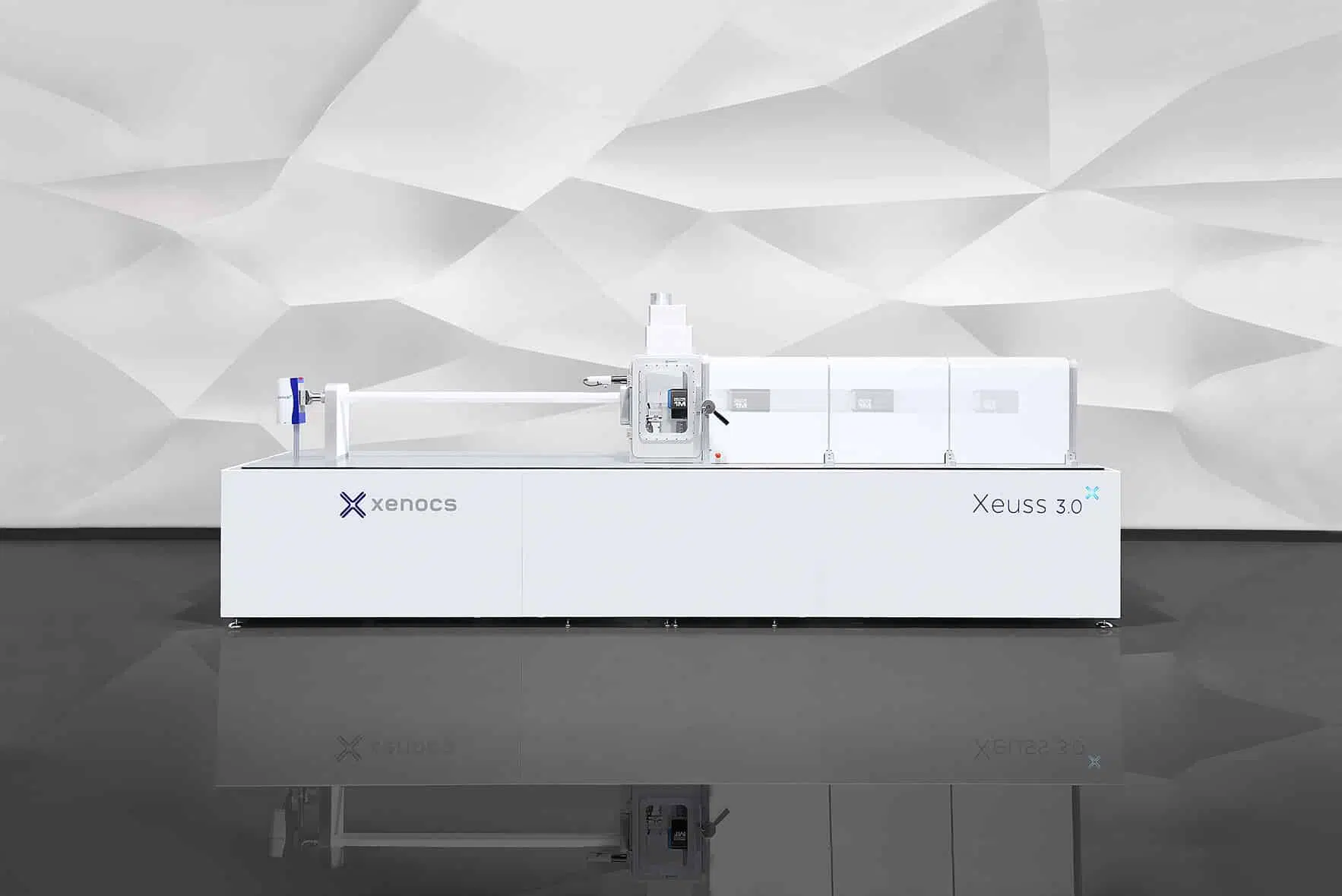Maurer, Johannes H. M.; González-García, Lola; Reiser, Beate; Kanelidis, Ioannis; Kraus, Tobias
Sintering of Ultrathin Gold Nanowires for Transparent Electronics
Ultrathin gold nanowires (AuNWs) with diameters below 2 nm and high aspect ratios are considered to be a promising base material for transparent electrodes. To achieve the conductivity expected for this system, oleylamine must be removed. Herein we present the first study on the conductivity, optical transmission, stability, and structure…
Sharp and strong “Brill transition” of poly(hexamethylene dithiocarbonate)
Zhao, Ti-Peng; Celli, Annamaria; Ren, Xiang-Kui; Xu, Jia-Ru; Yang, Shuang; Liu, Chen-Yang; Chen, Er-Qiang
In this paper, the reversible crystal-crystal transition of poly(hexamethylene dithiocarbonate) (PHMDC) has been systematically studied. According to various experimental results, we confirm that the transition shares the common features with Brill transition that is widely observed in nylons. This transition is clearly associated with the reversible trans-gauche conformational transformation of…
Shaping nanofiltration channels in a carbonaceous membrane via controlling the pyrolysis atmosphere
Xing, Zheng; Ng, Yeap Hung; Tay, Siok-Wei; Oon, Rachel Pek Har; Hong, Liang
This work investigates the effect of atmosphere on pyrolysis of a polymer matrix (precursor) for directing its transformation towards more disordered graphene species and smaller graphitic nanograins. These two structural characteristics are crucial to the generation of nano-channels (NCs) pertinent to nanofiltration (NF). Two measures are explored hereby to conduct…
Self-supporting thin films of imogolite and imogolite-like nanotubes for infrared spectroscopy
Liao, Yuanyuan; Picot, Pierre; Brubach, Jean-Blaise; Roy, Pascale; Le Caër, Sophie; Thill, Antoine
Due to their narrow and well-defined structure, single wall nanotube, aluminosilicate nanotubes (imogolites) are excellent candidates to study how water is modified by either confinement or by the interface nature. A protocol is provided here to produce imogolite films that are ideally suited for infrared studies. Two types of imogolites…
Self-Regulated Ion Permeation through Extraction Membranes
Duhamet, Jean; Möhwald, Helmuth; Pleines, Maximilian; Zemb, Thomas
Separation of rare earth compounds from water into an organic phase in practical cases requires the use of specific ion binding ligands in high concentrations. These tend to form complex liquid crystalline phases preferentially at ion-rich locations inside a pertraction membrane. They form a blocking layer above an ion concentration…
Self-assembly of a bio-based extractant in methyl esters: combination of small angle X-ray scattering experiments and molecular dynamics simulations
Rodrigues, Donatien Gomes; Fadel, Ophélie; Bauduin, Pierre; Girard, Luc; Guilbaud, Philippe; L’Hermitte, Annabelle; Rossignol-Castera, Anne; Diat, Olivier
The knowledge of the supramolecular structure of a polar oil that contains a bio-based extractant is necessary for a deep understanding of solubilization processes of polar species in oils. This study focuses on a ternary system containing the polyglyceryl-3-diisostearate (PG3DS), a bio-based extractant in cosmetic formulation, methyl esters (ME-Cn) as…
RAFT Aqueous Dispersion Polymerization of N-(2-(Methacryloyloxy)ethyl)pyrrolidone: A Convenient Low Viscosity Route to High Molecular Weight Water-Soluble Copolymers
Cunningham, Victoria J.; Derry, Matthew J.; Fielding, Lee A.; Musa, Osama M.; Armes, Steven P.
RAFT solution polymerization of N-(2-(methacryoyloxy)ethyl)pyrrolidone (NMEP) in ethanol at 70 °C was conducted to produce a series of PNMEP homopolymers with mean degrees of polymerization (DP) varying from 31 to 467. Turbidimetry was used to assess their inverse temperature solubility behavior in dilute aqueous solution, with an LCST of approximately…
RAFT Dispersion Alternating Copolymerization of Styrene with N-Phenylmaleimide: Morphology Control and Application as an Aqueous Foam Stabilizer
Yang, Pengcheng; Mykhaylyk, Oleksandr O.; Jones, Elizabeth R.; Armes, Steven P.
We report a new nonaqueous polymerization-induced self-assembly (PISA) formulation based on the reversible addition–fragmentation chain transfer (RAFT) dispersion alternating copolymerization of styrene with N-phenylmaleimide using a nonionic poly(N,N-dimethylacrylamide) stabilizer in a 50/50 w/w ethanol/methyl ethyl ketone (MEK) mixture. The MEK cosolvent is significantly less toxic than the…
Pyrrolidinium-functionalized poly(arylene ether sulfone)s for anion exchange membranes: Using densely concentrated ionic groups and block design to improve membrane performance
Dong, Xue; Lv, Dong; Zheng, Jifu; Xue, Boxin; Bi, Weihui; Li, Shenghai; Zhang, Suobo
To design and construct high ionic conductive anion exchange membranes (AEMs), tetra-pyrrolidinium-based block poly(arylene ether sulfone)s were synthesized. Pyrrolidinium groups were densely and controllably introduced into the polymer scaffold using a novel tetra-functionalized monomer, 4, 4′-oxybis (2,6-bis(pyrrolidinyl-1-methyl) phenol) (OBBPYP), which was synthesized via the Mannich…
Protein encapsulation in SBA-15 with expanded pores
Garcia, P. R. A. F.; Bicev, R. N.; Oliveira, C. L. P.; Sant’Anna, O. A.; Fantini, M. C. A.
This work reports the encapsulation of proteins with different molecular weights into SBA-15 ordered mesoporous silica, a potential immunological adjuvant. The Human Gammaglobulin G (HGG) and Bovine Serum Albumin (BSA) proteins were incorporated into the mesoporous silica with expanded pores. A structure swelling agent, triisopropylbenzene (TIPB), was used in the…


































